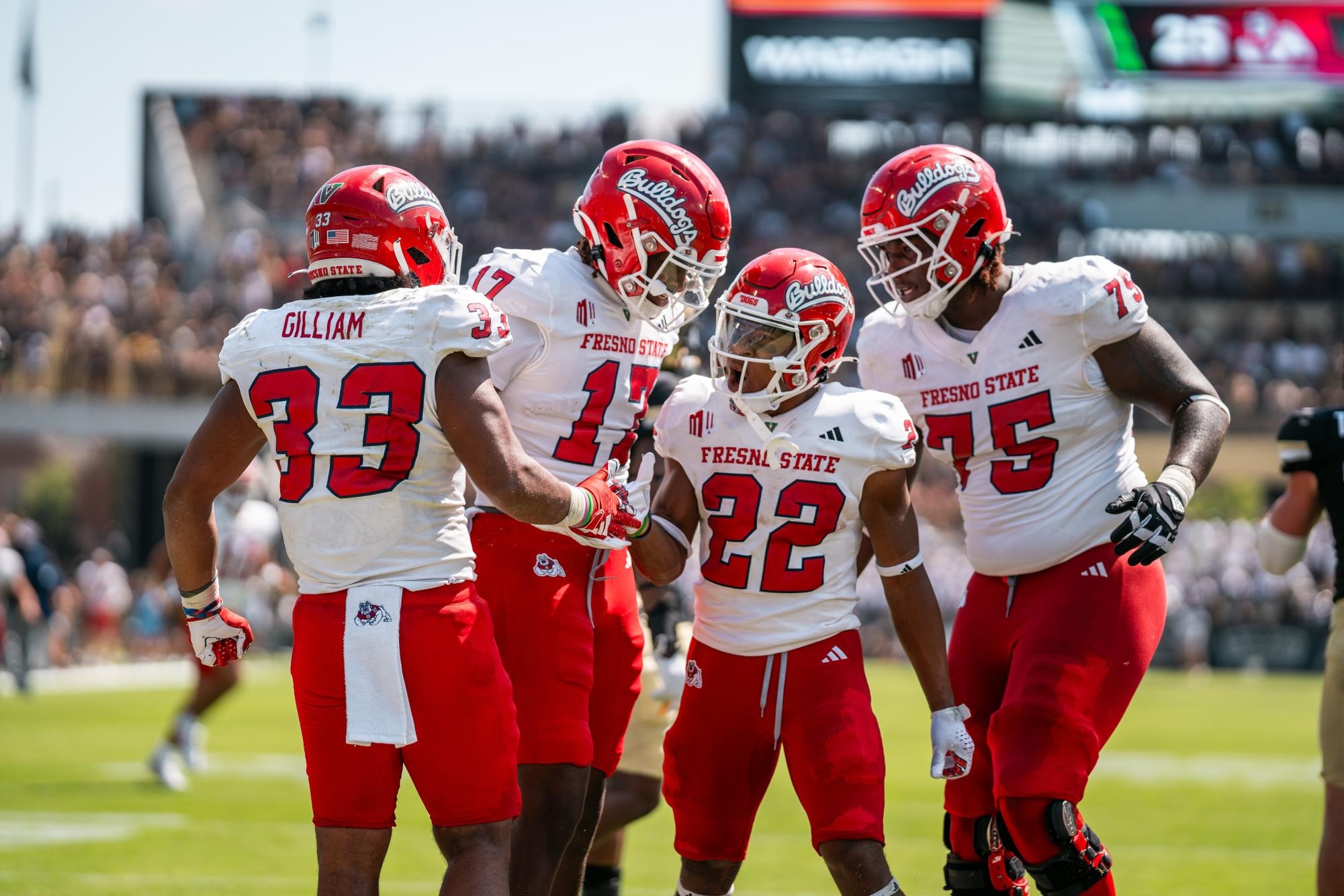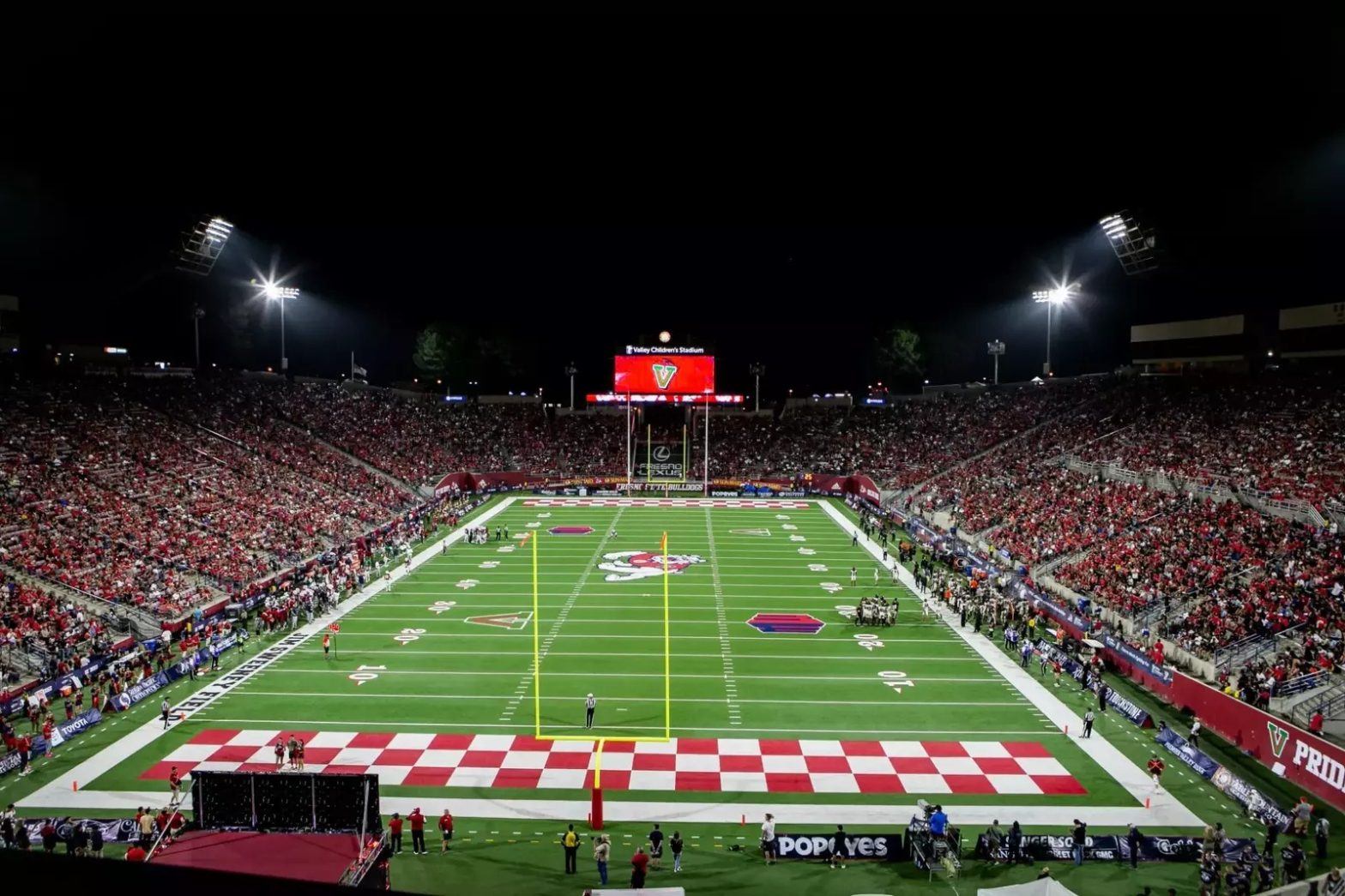Fresno State’s home opener against Eastern Washington on September 9 will mark a historic moment in FBS college football, featuring a broadcast exclusively in Spanish.
This milestone event, set to air at 6 p.m. PDT on UniMás, showcases Jessi Losada as the play-by-play announcer in Spanish, with an English audio option available via the Mountain West Network.

Frank Pucher, senior associate athletics director for external relations at Fresno State, explained this initiative aligns with the university’s deep connection to its community, where nearly 52% of students identified as Mexican in fall 2022.
Highlighting the effort, Pucher remarked, “Engaging our community is always a priority, and we strive to improve our outreach continuously.”
The collaboration with Univision came about when Fresno State secured national broadcast partnerships for 11 games, leaving one unclaimed.
The decision to partner with Univision for this game underscored the university’s commitment to its local community. Spanish-language sports broadcasts have a rich history, dating back over 50 years.
For example, the Los Angeles Dodgers introduced full-time Spanish broadcasts in 1958 after relocating from Brooklyn. This trend expanded into professional football during the 1990s with the Dallas Cowboys and later into network television, where Fox and ABC offered Spanish options starting in 1998.
More recently, the NFL has maintained its partnership with Entravision, which broadcasts 51 games annually in Spanish across U.S. stations.
Telemundo Became the First Spanish-language
Telemundo’s involvement began in 2012, covering Sunday Night Football and airing Super Bowl broadcasts on Universo.
In 2022, Telemundo became the first Spanish-language network to televise a Super Bowl, solidifying its role as the official Spanish-language broadcaster for NFL coverage through 2035.
The NBA and collegiate sports have also embraced bilingual broadcasting. The Orlando Magic began Spanish radio broadcasts in 1997, while the University of Texas Longhorns introduced Spanish audio for football games in 1995.
Fresno State’s adaptability and community demographics position it as a leader in this area. Matt Brown, publisher of Extra Point, noted that Fresno State’s autonomy in managing its broadcast rights allowed for innovative initiatives like this.
He added that the growing diversity of sports audiences might lead to broadcasts in additional languages, such as Mandarin or Cantonese, in the future.
Omnika Thompson, executive editor of NBCU Academy and DEI for NBCU News Group, praised the university’s efforts, linking them to broader goals of enhancing bilingual journalism and better serving Latino communities.
She expressed hope that Fresno State’s approach inspires other institutions to adapt their programming. Pucher hinted at plans to extend the Spanish-language broadcasts to other sports like basketball and baseball.
Reflecting on the positive feedback from fans, he shared stories of emotional connections, such as viewers wishing their Spanish-speaking relatives could enjoy the games together. He believes these heartfelt reactions affirm the importance of making sports more accessible to diverse audiences.
